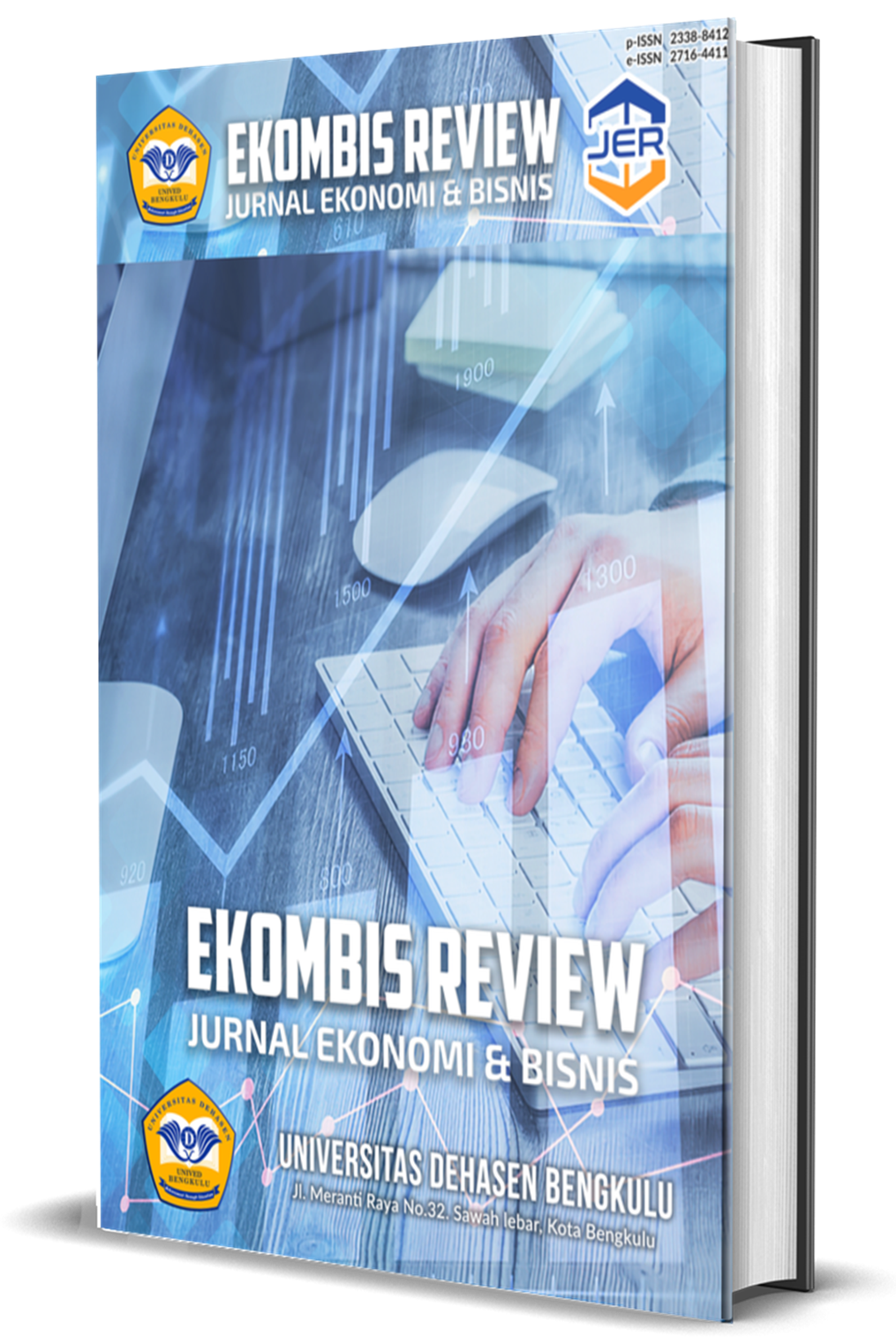Circular Economic Analysis Of The Goroho Banana Processing Industry At Smes In Manado City Towards A Green Economy: A Case Study Of Kios Saraba Doa Ibu
Abstract
This research aims to analyze the application of the circular economy concept in the Goroho banana processing industry at the Micro, Small, and Medium enterprises (MSME) level, with a case study of Kios Saraba Doa Ibu in Manado City. This study uses a qualitative approach based on in-depth interviews and observations to identify resource and waste management practices and development potential to improve business sustainability. The analysis results show that Kios Saraba Doa Ibu still faces various challenges in implementing the circular economy, primarily in handling banana peel waste and using cooking oil management. However, there are significant opportunities for waste utilization and the Development of value-added products that can support the transition of this MSME towards more sustainable business practices. Strategic recommendations include improving the owner's knowledge capacity, investing in waste processing technology, and developing circular business models suitable for the local MSME context. This study is the first to integrate circular economy approaches with waste management in goroho banana processing at Manado City urban, generating an innovative analytical framework for sustainable MSME development.
Downloads
Copyright (c) 2025 Steefra D. Mangkay, Angel Helda Semuruk, Yuliana Mose; Ingrid Novelia Sembiring

This work is licensed under a Creative Commons Attribution-ShareAlike 4.0 International License.
An author who publishes in the EKOMBIS REVIEW: Jurnal Ilmiah Ekonomi dan Bisnis agrees to the following terms:
Author retains the copyright and grants the journal the right of first publication of the work simultaneously licensed under the Creative Commons Attribution-ShareAlike 4.0 License that allows others to share the work with an acknowledgement of the work's authorship and initial publication in this journal
Submission of a manuscript implies that the submitted work has not been published before (except as part of a thesis or report, or abstract); that it is not under consideration for publication elsewhere; that its publication has been approved by all co-authors. If and when the manuscript is accepted for publication, the author(s) still hold the copyright and retain publishing rights without restrictions. For the new invention, authors are suggested to manage its patent before published. The license type is CC-BY-SA 4.0.
EKOMBIS REVIEW: Jurnal Ilmiah Ekonomi dan Bisnis is licensed under a Creative Commons Attribution-ShareAlike 4.0 International License.














